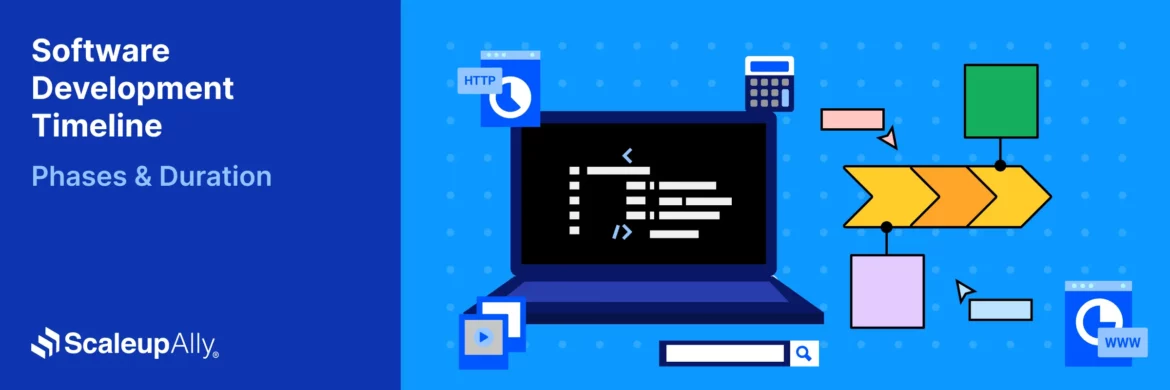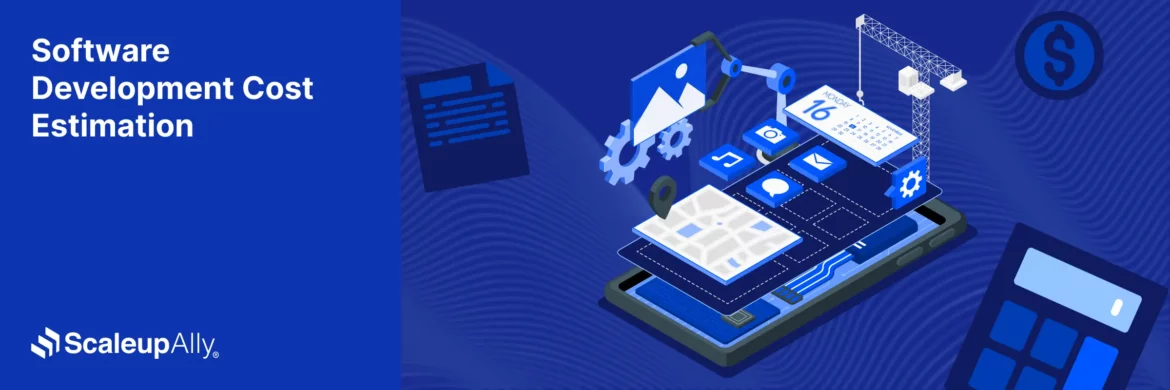11 Lightweight frameworks for PHP development
Suprabhat Sen | April 3, 2025 , 14 min read
Table Of Content
In the world of web development, choosing the right PHP framework is crucial for creating fast and efficient applications. Lightweight PHP frameworks offer a balance between features and performance, making them an ideal choice for developers who want to build projects quickly without sacrificing functionality.
In this article, we will explore seven of the best lightweight PHP frameworks that can help you streamline your development process and deliver high-quality applications. Whether you are a seasoned PHP developer or just starting out, these frameworks will provide you with the tools and resources you need to create amazing web applications.
| Framework | Popularity | Learning Curve | Performance | Ecosystem | Purpose | Web App |
|---|---|---|---|---|---|---|
| Symfony | High | Moderate | Excellent | Extensive | Modular and Extensible | Buffer: A social media management platform. Expensify: An expense report software. |
| Laravel | Very High | Low | Good | Robust | Elegant and Scalable | Deltanet Travel: A travel management platform. World Walking: A global walking community. |
| Yii | High | Moderate | Excellent | Extensive | Efficient and Secure | Flickr: An image hosting and sharing platform. 2amigos: A development company specializing in Yii. |
| CodeIgniter | Moderate | Low | Good | Limited | Lightweight and Versatile | Buffer: A social media management platform. Expensify: An expense report software. |
| Slim | Low | Low | Good | Limited | Minimalistic and Fast | FreshRSS: A self-hosted RSS aggregator. Status Pages: A status monitoring and reporting service. |
| Phalcon | Low | High | Outstanding | Limited | High Performance and Intuitive | Trackr: A time tracking and invoicing application. StakeIt: A cryptocurrency portfolio tracker. |
| Lumen | Moderate | Low | Good | Laravel-Based | Lightweight for blazing-fast APIs and microservices | Wolt: A food delivery platform. Torch: An e-learning platform for teachers. |
| CakePHP | Moderate | Moderate | Good | Active Community | Full-stack framework emphasizing “Convention over Configuration” to reduce manual setup and speed development | BikerOrNot: A social network for motorcyclists, among others |
| Medoo | Low-Moderate | Low | Good | Minimal | Lightweight database abstraction library for simplified CRUD operations | Often used in smaller projects or microservices that require a clean and simple database layer |
Symfony is a prominent player in the PHP framework landscape known for its modularity and extensibility. It encourages the use of reusable components, also known as Symfony components, which can be easily integrated into your project. This flexibility makes Symfony suitable for projects of all sizes and natures, from simple websites to complex enterprise-level applications. With its comprehensive documentation and active community, Symfony offers a robust framework that can meet your project requirements
Silex is a micro-framework built on top of the Symfony components. It offers a lightweight and flexible approach to web development, allowing developers to create simple yet powerful applications. Silex provides a simple API for defining routes, handling requests, and rendering views. It also leverages the extensive Symfony ecosystem, making it easy to integrate with other Symfony components and libraries.
Key Features of Silex Framework:
Laravel is one of the most popular PHP frameworks, widely acclaimed for its elegant syntax and comprehensive features. It follows the Model-View-Controller (MVC) architectural pattern, which enables developers to build scalable and maintainable web applications.
Laravel’s robust ecosystem of tools simplifies tasks such as database management, routing, and authentication, making it an ideal choice for both small and large-scale projects. With its expressive syntax and intuitive interface, Laravel empowers developers to write clean and efficient code.
Also Read: Top Benefits of Using Laravel Framework
Laravel Zero is a lightweight version of the popular Laravel framework. It is specifically designed for building command-line applications and microservices. With a minimalistic approach, Laravel Zero provides a stripped-down version of Laravel, focusing on the essentials needed for command-line development. It offers a robust foundation for building efficient and scalable applications with minimal overhead.
Key Features of Laravel Zero:
Yii is a modern PHP framework designed for developing efficient and secure web applications. It embraces the Don’t Repeat Yourself (DRY) principle and includes a powerful code generation tool called Gii. To fully leverage such frameworks, businesses often work with specialized PHP Development Services for building performance-driven and secure solutions.
Yii is known for its speed and performance, making it an excellent choice for applications that require robust security features. When you hire a PHP developer, ensure they are familiar with Yii to leverage its capabilities for building secure web applications.
CodeIgniter is a lightweight PHP framework that strikes a perfect balance between features and performance. It is an ideal choice for developers who want to render projects quickly without compromising on functionality.
CodeIgniter’s minimal learning curve and straightforward configuration make it accessible to developers of all skill levels. With its simplicity and speed, CodeIgniter remains a popular choice for building a wide range of web applications.
Got an app idea? Let’s turn it into something amazing!
Talk to us for tailored solutions and expert guidance.
If you are looking for a micro-framework that excels in simplicity and speed, Slim Framework is an excellent choice. With a small footprint and minimal dependencies, Slim allows developers to quickly build powerful web applications and APIs.
It provides a fast and efficient routing system, middleware support, and a lightweight template engine. Slim is perfect for small to medium-sized projects that require a lightweight PHP framework.
Key Features of Slim Framework:
Phalcon is a full-stack PHP framework known for its exceptional performance and low resource overhead. Unlike traditional PHP frameworks, Phalcon is implemented as a C extension, resulting in unparalleled speed and efficiency. Phalcon offers a rich set of features, including an ORM, a caching system, and support for MVC architecture. If you need a lightweight PHP framework that can handle heavy traffic and high-performance requirements, Phalcon is an excellent choice.
Key Features of Phalcon Framework:
Lumen is a micro-framework developed by the creators of Laravel. It is designed for building blazing-fast APIs and microservices. Lumen provides a lightweight and streamlined version of Laravel, optimized for speed and performance. It offers a powerful routing system, support for middleware, and seamless integration with Laravel’s ecosystem. Lumen is an excellent choice for developers who value speed and simplicity in their PHP development projects.
Key Features of Lumen Framework:
CakePHP is a long-established PHP framework that prioritizes convention over configuration. It streamlines development with its built-in scaffolding, allowing developers to build robust applications quickly. With an active community and a rich set of features, CakePHP is well-suited for teams that value a standardized approach and want to minimize boilerplate code.
Key Features of CakePHP Framework:
Medoo is a lightweight PHP database framework designed for simplicity and performance. Rather than functioning as a full-stack framework, Medoo focuses solely on database interactions, making it an excellent choice for applications that need a clean and minimalistic database layer. It uses a straightforward API that abstracts away the complexities of raw SQL, offering a smooth and efficient workflow for developers.
Key Features of Medoo Framework:
The frameworks mentioned above offer several benefits that make them highly versatile and efficient tools for web development projects.
Some of these benefits are:
When it comes to choosing the best lightweight PHP framework, there are several popular options available in the market. Some of the top contenders include Symfony, Laravel, Yii, CodeIgniter, Silexniter, Slim, Phalcon, Lumen, and Laravel Zero.
However, selecting the most suitable framework for your project requires careful consideration of various factors.
Also Read: Can PHP be used with React?
Choosing the best lightweight PHP framework depends on your specific project requirements and preferences. Consider factors such as performance, ease of use, compatibility with third-party tools, and long-term support before making a decision. Ultimately, the right framework will empower you to build efficient and scalable PHP applications
Furthermore, while hiring PHP developers, consider their competence in these frameworks based on your project requirements to ensure a successful development journey. Embrace the power of lightweight PHP frameworks and unlock the potential for fast and efficient web development.
Q: Which PHP framework is lightweight?
Good examples of lightweight PHP frameworks include Silex, Slim, Laravel Zero, and Lumen. Silex is a micro-framework, Slim offers simplicity and speed, whereas Laravel Zero is minimalistic for command-line applications, and Lumen is optimized for building fast APIs & microservices.
Q: Which PHP framework is fastest?
Phalcon is known to be the fastest PHP framework for its C extension-based implementation. It results in extracting exceptional performance at a low resource overhead, while still obtaining rich features with high efficiency consistently.
Q: Which PHP framework is the best?
Picking the best PHP framework majorly depends on the project requirements. Laravel is presently well-acclaimed for its comprehensive features and elegant syntax, which suits a variety of projects. Alternatively, Symfony is an ideal pick for large-scale and complex applications because of its extensibility and modularity.
Q: Is Laravel a lightweight framework?
While Laravel is one of the most popular and feature-rich PHP frameworks, it is not typically considered lightweight like micro-frameworks like Slim or Laravel Zero.
Q: Which PHP framework is small footprint?
For a small footprint and fast setup, CodeIgniter is a widely recognized option. Its straightforward configuration and limited overhead helps streamline development without sacrificing essential functionality.
Related Blogs

Top 20 Emerging Technologies of 2026
Discover the top 20 emerging technologies of 2026. Explore which innovations are driving change across healthcare, finance, manufacturing, and other crucial industries.
ScaleupAlly Team
Dec 16 ,
9 min read

Software Development Timeline: Phases, Duration & Estimation Guide
Understand the software development timeline with phase durations, key factors, hidden delays, and practical methods to estimate project time.
Suprabhat Sen
Nov 29 ,
16 min read

Software Development Cost Estimation Guide: What’s Included & What Affects the Price
Explore software development cost components, major pricing factors, and practical estimation methods to plan your project accurately from start to finish.
Suprabhat Sen
Nov 29 ,
14 min read

